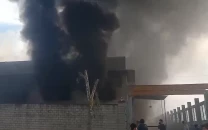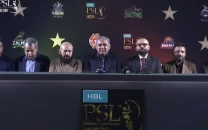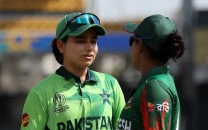Other voices

But, whether or not the state acknowledges their existence in its documents or list of statistics, the fact is that today the riverine Kihaal people of the Upper Indus, the Kafirs of the Kalash Valley and communities on the Makran coast struggle to survive. The Kihal, who have for centuries made a living off the river they live besides, are today threatened by development projects based along it. They have, in many cases, been forced to move away from their native areas, making it difficult to catch fish or the reeds used to build houses. The classification of the Kihals, by people living around them, as ‘low-caste,’ non-Muslims, essentially on the basis of their diet, adds to their problems.
The threat faced by the Kalash people has been better documented. Today their way of life has been devastated and forced conversions continue in the area. In many ways a people with a unique culture have been converted into a tourist attraction: the women line up to dance at festivals designed to bring in tourists. We need a far more open acknowledgement of Pakistan’s minority people. It is foolish to pretend, as is so often implied, that we are a uniform nation. Huge diversity exists within the boundaries of our country. We constitute a kind of Babel where many tongues are spoken, where there are many cultures, many modes of life. This needs to be projected. A policy drawn up for indigenous people and their rights protected as part of an acknowledgement that diversity should be a reason to celebrate and not a reality shrouded in secret.
Published in The Express Tribune, June 21st, 2010.


















COMMENTS
Comments are moderated and generally will be posted if they are on-topic and not abusive.
For more information, please see our Comments FAQ